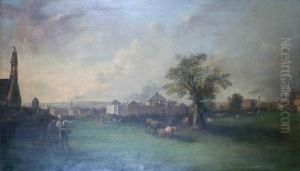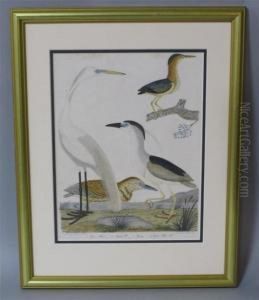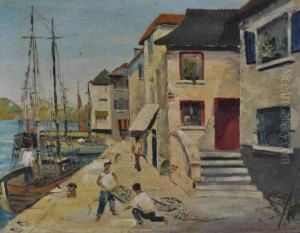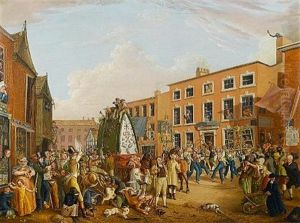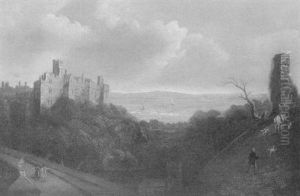Alexander Wilson Paintings
Alexander Wilson was a Scottish-American poet, ornithologist, naturalist, and illustrator. He is often referred to as the 'Father of American Ornithology' due to his seminal work in the field. Born on July 6, 1766, in Paisley, Renfrewshire, Scotland, Wilson's early life was one of modest means, and his education was limited. He initially worked as a weaver, a trade common in Paisley, but also developed a strong interest in poetry and was influenced by the Scottish bard Robert Burns.
In his early years, Wilson wrote poetry and was involved in the radical politics of the time, which led to trouble with the law. Dissatisfied with his life in Scotland and after facing legal issues, Wilson emigrated to the United States in 1794, seeking a fresh start. Settling in Pennsylvania, he met the famous naturalist William Bartram, who encouraged Wilson's growing interest in ornithology.
Wilson traveled extensively across the United States, studying and documenting its birds. His major work, 'American Ornithology; or, The Natural History of the Birds of the United States,' was a pioneering publication in which he described numerous species of birds and provided detailed illustrations. This work was published in nine volumes between 1808 and 1814, with the final volume released posthumously.
During his travels, Wilson encountered and recorded observations of 268 species of birds, 26 of which had not previously been described. His illustrations were notable for their accuracy and artistic quality. Wilson's approach to ornithology was revolutionary for its time, as he insisted on observing birds in their natural habitat. His work laid the foundation for the field of American ornithology and strongly influenced later figures like John James Audubon.
Tragically, Wilson's intensive travels and the exertion of producing his great work took a toll on his health. He died on August 23, 1813, in Philadelphia, at the young age of 47. Despite his relatively short life, Alexander Wilson's contributions to ornithology and natural history remain significant, and his legacy is celebrated by ornithologists and bird lovers to this day.
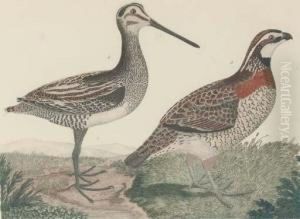
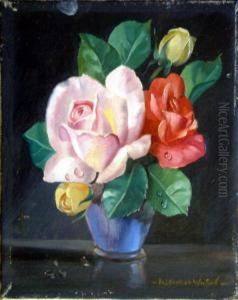
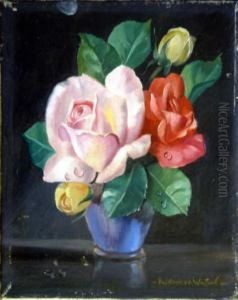
![Philadelphia: Robert [and William] Carr For Bradford And Inskeep, 1809-1814](https://www.niceartgallery.com/imgs/1111617/s/alexander-wilson-philadelphia-robert-and-william-carr-for-bradford-and-inskeep-18091814-6b238cac.jpg)
